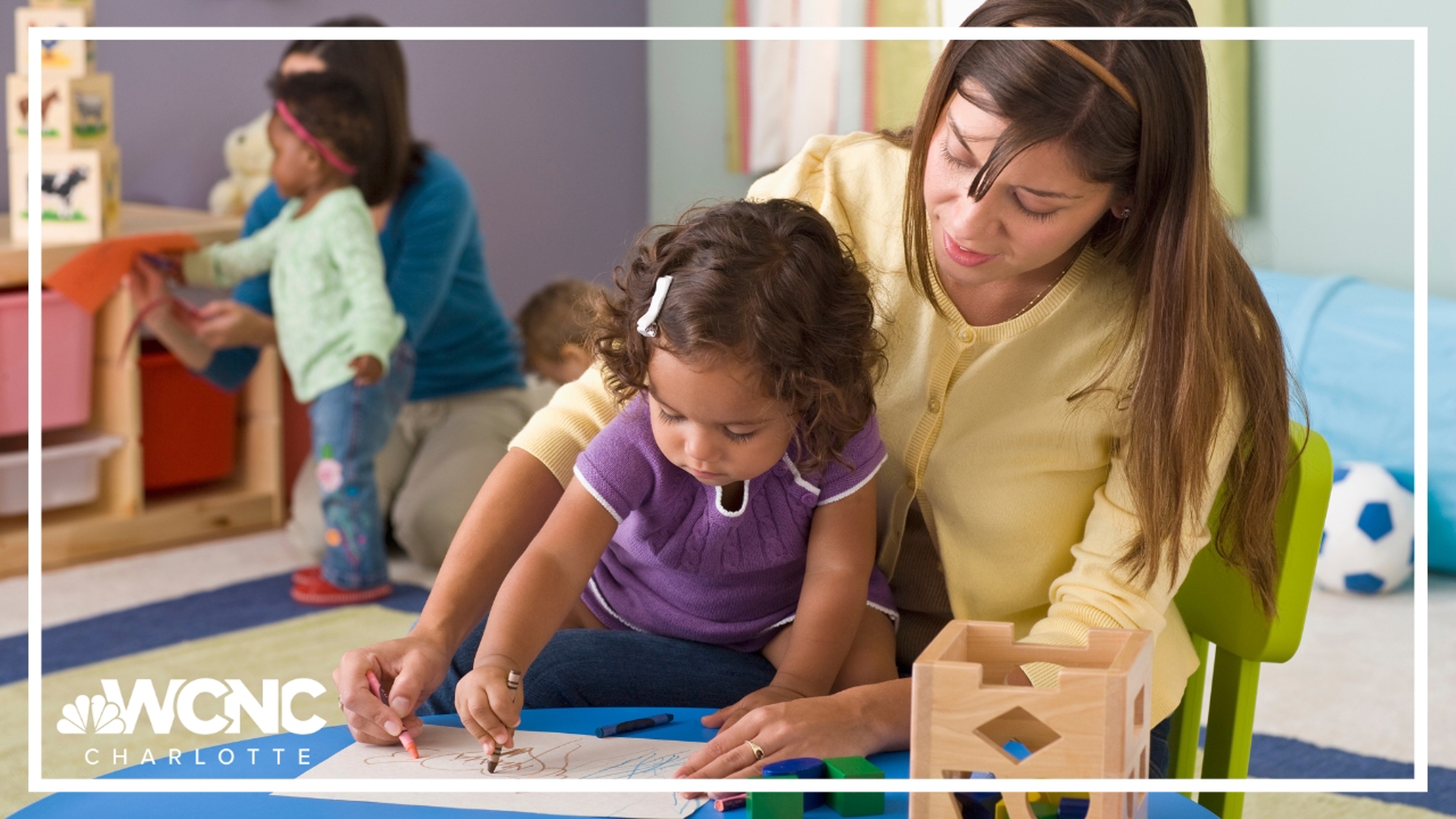NORTH CAROLINA, USA — Child care centers in North Carolina are left asking where’s the money as they await the future of emergency funding that would provide nearly $68 million for the end of the year.
The money would take some weight off facilities now that COVID-era funding is gone.
WCNC Charlotte is always asking "where's the money?" If you need help, reach out to WCNC Charlotte by emailing money@wcnc.com.
Early childhood education advocates say this funding crisis points to a bigger issue, a serious lack of funding.
“I’ve always had a love for children,” Quality Care Child Care Owne Kim Jant told WCNC Charlotte's Jesse Pierre.
Advocates tell WCNC Charlotte that child care is essential for families, businesses and the economy. They say there needs to be a long-term investment in early childhood education and child care that keeps it affordable for families and gives facilities the support they need to hire and retain qualified staff so kids can thrive.
Child care is where the building blocks of learning begin.
For 11 years, Jant has been in the industry and for the last 6 years she brought the work home and started Quality Care Child Care.
“We have a music center, which they enjoy,” Jant said. "I love to bring the music in because that is another form to help them with their language and literacy."
Jant said it’s about building strong minds.
"We have to keep going. The children need us and honestly, they bless us too,” Jant. said. “It is a challenge but anything worthwhile in life is a challenge.”
With the end of federal dollars made available during the pandemic, Jant said she is back to a tighter budget.
“I’m making cuts as far as buying in bulk and watching all of the sales and all of the ads,” Jant said. “It means I will be cutting back as far as a salary ... as far as for myself.”
It’s an industry that advocates say has not gotten the attention it deserves.
“It’s an inadequately financed system, and has historically been an inadequately financed system,” Child Care Resources Inc. CEO & President, Janet Singerman said. “The funding that the feds invested brought our North Carolina child care funding level to about $1.3 billion when the ARPA money ends that reverts to a more typical funding level, about $400 million and so that is a huge cliff.”
Many facilities used the money to buy equipment, supplies and give staff raises and bonuses. Singerman said that on average, pre-pandemic, a classroom teacher made about $12 an hour but with stabilization grants statewide, it averaged about 14 to $15 an hour.
Child care advocates and facilities are keeping their eye on a $67.5 million stop gap funding bill to make it through the end of the year. Lawmakers plan to take up the funding matters when back in session.
“We hope that the balance of the funding necessary will be considered when this state budget is adopted, critically important to keep child care programs, operating without really fully passing on those increased costs to families and reducing other kinds of expenditures that we are concerned might impact quality," Singerman said. "So, it buys us more time.”
With the right investment, Jant said centers can have the resources to provide the kids the foundation they need to build kids up because right now the system is not sustainable.
“If inflation keeps the way it is and the funding is not there… you are going to have to make some really serious decisions about your business,” Jant said.
The bill awaits Governor Roy Cooper's signature.
Contact Jesse Pierre at jpierrepet@wcnc.com or follow her on Facebook, X and Instagram.
WCNC Charlotte's Where's The Money series is all about leveling the playing field in the Carolinas by helping others and breaking down barriers. WCNC Charlotte doesn't want our viewers to be taken advantage of, so we’re here to help. Watch previous stories where we ask the question “Where’s the Money” in the YouTube playlist below and subscribe to get updated when new videos are uploaded.

